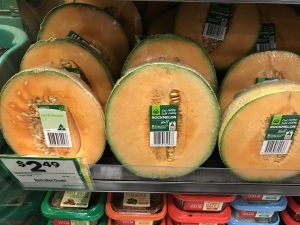When Chapman and I started barfblog.com on an airplane flight in 2005 (name credit goes to former student Christian), we thought it would last a couple of years.
 It was supposed to be a mix of the personal, the pop, and evidence-based research.
It was supposed to be a mix of the personal, the pop, and evidence-based research.
I’ve quit many times, because, that’s what I do, but with my brain going, writing is about the only thing to keep me sane.
I say the same thing to Amy every few months.
I’m an idiot.
Amy told me to start a separate blog, dougsdeadflowers.com, and write whatever I want, but barfblog.com has become part of me for the past almost 20 years.
And then yesterday I saw a get-well message from a Canadian public health inspector who said, “you are our hero.”
Sure, I’m that vain.
I’m confused, and my brain ain’t working, so in the name of transparency, I throw it to my readers who have been there for 26 years:
- should I stop writing
- should I focus my available energy on a book
- should I have a separate blog for personal stuff (which means barfblog.com would die, because Chapman is not a writer)
- should I mix personal stuff in with the food safety stuff, or is that too narcissistic?
My inclination is to follow my Welsh roots and not go gentle into that good night, but that is hard on those I love.
And this is why Australian retailers should stop selling half-cut cantaloupe-rockmelons and others.
As soon as melons are cut, bacteria go to town.
The U.S. Food and Drug Administration (FDA), along with the Centers for Disease Control and Prevention (CDC), and state and local partners, is investigating a multistate outbreak of Salmonella Carrau illnesses linked to pre-cut melon products. These products contain cantaloupe, honeydew, or watermelon, or may be mixes of some or all of these melons and other pre-cut fruit.
 Caito Foods, LLC, of Indianapolis, Ind., has recalled products containing pre-cut melons because they are potentially contaminated with Salmonella. Additionally, Caito Foods, LLC has temporarily suspended producing and distributing these products.
Caito Foods, LLC, of Indianapolis, Ind., has recalled products containing pre-cut melons because they are potentially contaminated with Salmonella. Additionally, Caito Foods, LLC has temporarily suspended producing and distributing these products.
FDA worked with CDC and state partners to trace the distribution of pre-cut melon mixes from individual case patients back to Caito Foods, LLC. FDA is also continuing its traceback investigation to identify the specific source of these melons. Salmonella Carrau is a rare type of Salmonella but has been historically seen in imported melons. Reports from Caito Foods LLC indicate that imported melons were used in the suspect pre-cut melon mixes. FDA’s traceback investigation is examining shipping records to try to determine a country and if possible, a farm of origin for the melons.
FDA and Indiana authorities are currently inspecting and investigating, to include collecting samples for laboratory analysis, at the Caito Foods LLC processing facility where these melons were cut and packed.
Caito Foods, LLC was linked to a similar outbreak in 2018 involving Salmonella Adelaide in pre-cut melon products.
